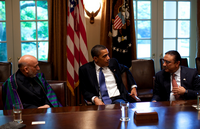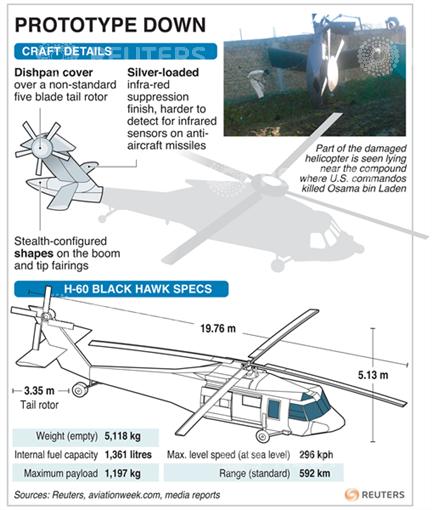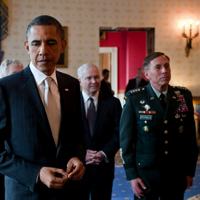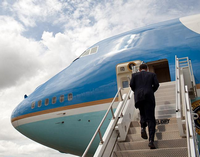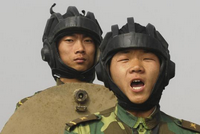
Philip Stephens in Thursday's FT on the deterioration of the past year or so:
“You started it” has thus far been the shared refrain. So Mr Hu will be tempted to protest that the second of the two developments flowed from the first: the chill was a consequence of a US strategy to contain China. Mr Obama’s riposte will be that America’s diplomatic and military re-engagement in the region was an inevitable response to China’s decision to throw its weight around.
The sad thing is, how much this sounds like two children arguing.
Now to the real underlying tensions, which hardliners are taking advantage of. Naturally, this was the guiding dynamic for our (Center for America-China Partnership) recent "term sheet" proposal for Hu and Obama:
This, of course, is before the two leaders get to the economics. Most of the headlines from Mr Hu’s state visit next week will probably be generated by differences over trade and exchange rate policy. China’s huge trade surplus generates strong protectionist pressure in the US. Washington’s oft-repeated demand for revaluation of the renminbi is seen in Beijing as unwarranted intrusion in China’s economic affairs.
These are the issues where the domestic political pressures most obviously bite. Mr Obama is presiding over a jobless recovery. Mr Hu is under constant pressure from the Chinese exporters who have driven the country’s growth.
The best point, which starts fleshing out our term sheet:
Taking a longer view, the success or failure of the White House summit will depend on whether the two presidents manage to break out of the loop of deepening mistrust over the balance of power in east Asia. The dangerous flashpoints in the relationship are to be found on the Korean peninsula and the seas off China’s eastern coastline.
On the face of it, there are powerful incentives to defuse the tensions. Neither country has anything to gain from an escalation of what already looks like an east Asian arms race. [emphasis mine] Both, albeit in different ways, are threatened by the unpredictability of the nuclear-armed regime in Pyongyang.
A longer bit reciting the recent Gates trip, J-20 show, etc.
The response of the People’s Liberation Army was to stage-manage the maiden flight of its new stealth fighter jet only hours before Mr Gates’s meeting with Mr Hu. The test of the hitherto secret J-20 inevitably fanned speculation about a power grab by China’s military chiefs.
Frankly, the rush to judgment on that last bit strikes me as silly. Gates reads a face and assumes he knows how the Chinese portray surprise v. embarrassment v. putting on a good show ("What? I know of no test" and so on). Honestly, the speculation here, some by very experienced analysts on our side, is embarrassingly broad.
Chinese foreign policy experts acknowledge the rising influence of the PLA. Some of them worry about it. China’s economic rise, they say, has made the case for a rapid expansion of military capabilities to match the country’s burgeoning interests and vulnerabilities. The booming economy has provided the PLA with the wherewithal, while its leadership has proved adept at harnessing popular nationalism.
Can I get a "duh!" on all that. Normal stuff for a rising power, and not at all illogical or particularly "provocative" as long as we act like adults.
The risks of misunderstanding and miscalculation reach beyond the particular ambitions of the PLA. Washington, too, has its hawks. What’s worrying is that the political leaderships of the two countries have thus far failed to provide an alternative narrative.
The true missing piece: the "alternative narrative." That's what the term sheet is for.
In the US administration’s version of events, Mr Obama’s offer in 2009 of a strategic partnership was misinterpreted by Beijing as admission of US decline.
Oh my, can we put away our shame for a second here and remember who we are?
China saw an America gripped by the financial crisis and facing secular decline. Its response was to push around its neighbours, to take a tougher line on Taiwan, to harden its maritime claims and step up the missile and other weapons programmes specifically designed to counter US access to the region.
All stipulated.
In the Chinese account, the trouble began with US arms sales to Taiwan, its welcome for the Dalai Lama, its support for Japan in the disputed East China Sea and its declaration of a national interest in the South China Sea. Whatever Washington might say about partnership, its regional alliance-building, notably with India, and a provocative series of US military exercises smacked of a strategy of containment.
The second great "duh!" of the piece, but Stephens has to include, because that's how weak our dialogue on this subject has been. We need to be reminded of our own actions and their consequences. To me, this says the Obama crowd ain't all that different from the neocons. The primacy impulse is still there--as in, "we call the shots, and you do the dance!"
A more objective view would say China did misjudge the reaction both in the region and in Washington to its more combative stance.
Clearly. Point is, Beijing's reaction was not unjustified. You're not paranoid if everyone around you is plotting against you.
In any event, you do not have to take sides to see where the present standoff is leading. China builds new weapons systems designed to push US forces farther from its coastline; the US develops countermeasures. The hawks’ prediction of inevitable confrontation then becomes self-fulfilling as mistrust feeds miscalculation.
Couldn't agree more.
There is no easy way out of this loop. China will continue to build its military and to stake its claim to a pre-eminent role in its own backyard. That is what rising powers do. The US is not about to abandon its role as the guardian of east Asian security. Great powers do not readily hand over to new ones. Anyway, most of the countries in the neighbourhood want the US to stay.
All true.
Washington is not trying to contain China. It knows the attempt would be futile.
Wrong. Washington is being granted too much intelligence and foresight here by Stephens, who does not realize how strong the big war crowd is at the Pentagon. Clapper was one thing, but just watch when RMAer Michael Vickers becomes USec for Intell. Expect a steady stream of analysis on China as the looming big threat. I could be wrong, but I see the combo of go light on terror (footprint) and go heavy on China as the new preferred mix in the PNT. I think this is dreaming, because I know China will disappoint and Al Qaeda will not.
FT piece ends with a vague bit of, Can't we all just get along.
But other than the end, solid logic throughout and a great piece to see in the FT.
My WPR piece on Monday will extend this logic considerably: It is entitled, "The Top Ten Reasons Why Washington Must Demonize China."
 Tuesday, May 31, 2011 at 1:30PM
Tuesday, May 31, 2011 at 1:30PM 
 Afghanistan,
Afghanistan,  China,
China,  Iran,
Iran,  Pakistan,
Pakistan,  Russia,
Russia,  US foreign policy | in
US foreign policy | in  Tom in the media |
Tom in the media |  Email Article |
Email Article |  Permalink |
Permalink |  Print Article
Print Article 








